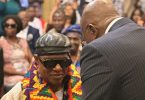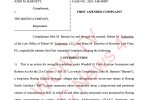All travelers arriving from India before suspension date regardless of the route of travel have to be in possession of a negative PCR COVID-19 test certificate that is digitally verifiable conducted within 120 hours from the time of sample removal, undergo a mandatory PCR test upon arrival, and if testing positive must undergo isolation at a government-approved isolation center at their own cost. Those who test negative are required to self-quarantine under the supervision of MOH with mandatory re-testing between 5 to 10 days.
Exempted from the suspension of flights and travelers from India are cargo flights where crew do not disembark, technical stops where travelers do not disembark, aircraft in emergency operations related to humanitarian aid, medical evacuation and diplomatic flights approved by the appropriate authority, and nationals returning home after medical treatment in India.
Travelers from the USA, United Kingdom, United Arab Emirates, Turkey, South Africa, Ethiopia, South Sudan, and Tanzania including Ugandan nationals will be subjected to a PCR COVID-19 test at the points of entry including Entebbe International Airport.
Individuals in Category 2 and 3 of the World Health Organization (WHO)-listed countries who have received their full COVID-19 vaccination and are asymptomatic will be allowed into the country without the need for testing on arrival.
Uganda has administered at least 339,607 doses of COVID vaccines so far with the AstraZeneca vaccine.
Dr. Yonas Tegegn Woldermariam, the World Health Organization Country Representative, was impressed that even with such small vaccination figures, Uganda is among the countries performing well as far as uptake in Africa is concerned.
He urged countries not to be worried about the circulating news of vaccine expiries noting that countries that have destroyed or returned their jabs have only wasted them.
There have been 41,973 infections, 41,598 recoveries, and 342 coronavirus-related deaths as of May 1, 2021 reported in the country since the pandemic began (source: MOH).
There is a sizable Indian community in Uganda dating back to the construction of the Uganda Railway in colonial times in the late 19th century. They were expelled by President Idi Amin in 1972 and their properties appropriated in his declared “economic war.” They returned in the 1990s following the return of their properties and have since grown to 50,000 strong.
This community of Indians form the backbone of the business community in Uganda including the Madhvani Group, Ruparelia Group, Somanis, and Mehta Group. The Imperial Group, Aga Khan, etc. in the hospitality, sugar, and manufacturing industries, under the umbrella of the Indian Association of Uganda have made significant contributions to scholarship, blood donation drives, heart surgery, and medical camps, and have even donated foodstuffs to the wildlife at the Uganda Wildlife Education and Conservation Centre (UWEC) in Entebbe during the lockdown last year.
#rebuildingtravel






















